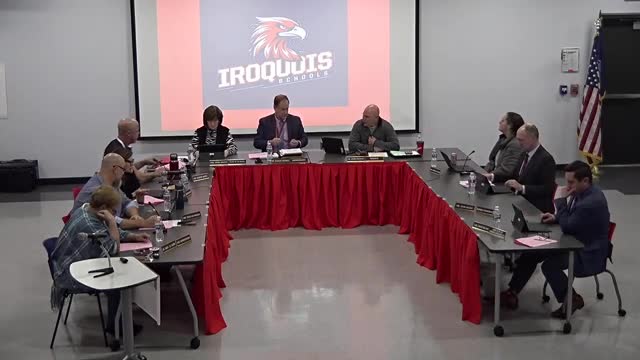Board narrows capital scope to $23 million option to avoid near-term tax impact
Get AI-powered insights, summaries, and transcripts
Subscribe
Summary
After discussing multiple approaches including a two-proposition plan, directors signaled preference to pursue a $23 million project focused on roofs and key heating work that staff say can be done without an immediate tax increase; full $34 million scope remains an option for later.
Board members and district staff spent extended time weighing options for a planned capital project and questioned whether a split (two-proposition) ballot would confuse voters or jeopardize later budgets.
Superintendent Douglas Scofield and staff presented two main options: a larger comprehensive project (discussed at roughly $34 million in earlier planning) that would require voter approval with a tax impact, or a trimmed scope of about $23 million that staff said could address the highest-priority items—high school roof, Wales Primary and Marilla Primary roofs and backbone electrical/heating work—using available reserves, phasing and project design to avoid an immediate tax increase.
Staff said the $23 million approach would allow the district to complete the most critical roofing and heating backbone work now and defer some room-level unit replacements (for instance, individual unit ventilator replacements at the high school) if funding or grants do not materialize. The district’s head of buildings and grounds (named in the discussion) told the board roofs and the heating backbone were the most urgent items; staff emphasized that delayed work can increase long-term costs but also noted that a tax‑impact proposition’s levy effect often appears one to two years after a project vote because of the project approval, design and borrowing timeline.
Several board members expressed concern that a two-proposition ballot has produced mixed results in neighboring districts and might depress approval rates for essential items. There was broad support in the board discussion for focusing on a single, no‑tax‑impact proposition if staff can ensure the chosen scope covers “critical” and “really critical” needs. Staff said the revised $23 million number results from updated reserve calculations and refinements with financial consultants and buildings staff.
Staff outlined the practical timeline: project approval by the state, design and bidding take many months; borrowing and levy effect typically lag the voter decision, often by about 18 months. The superintendent and business staff also said they would continue to refine scope and reserve use and bring further details back to the board.
Why it matters: Capital projects are large, visible taxpayer investments and the board must balance urgent building needs against voter sentiment and future budgetary impact.
Next steps: Staff will continue to refine the scope and return to the board with a final recommended proposition; the board instructed staff to prioritize roofs and backbone heating/electrical work and to avoid a confusing multi-proposition presentation if a single $23 million solution can meet the urgent needs.
